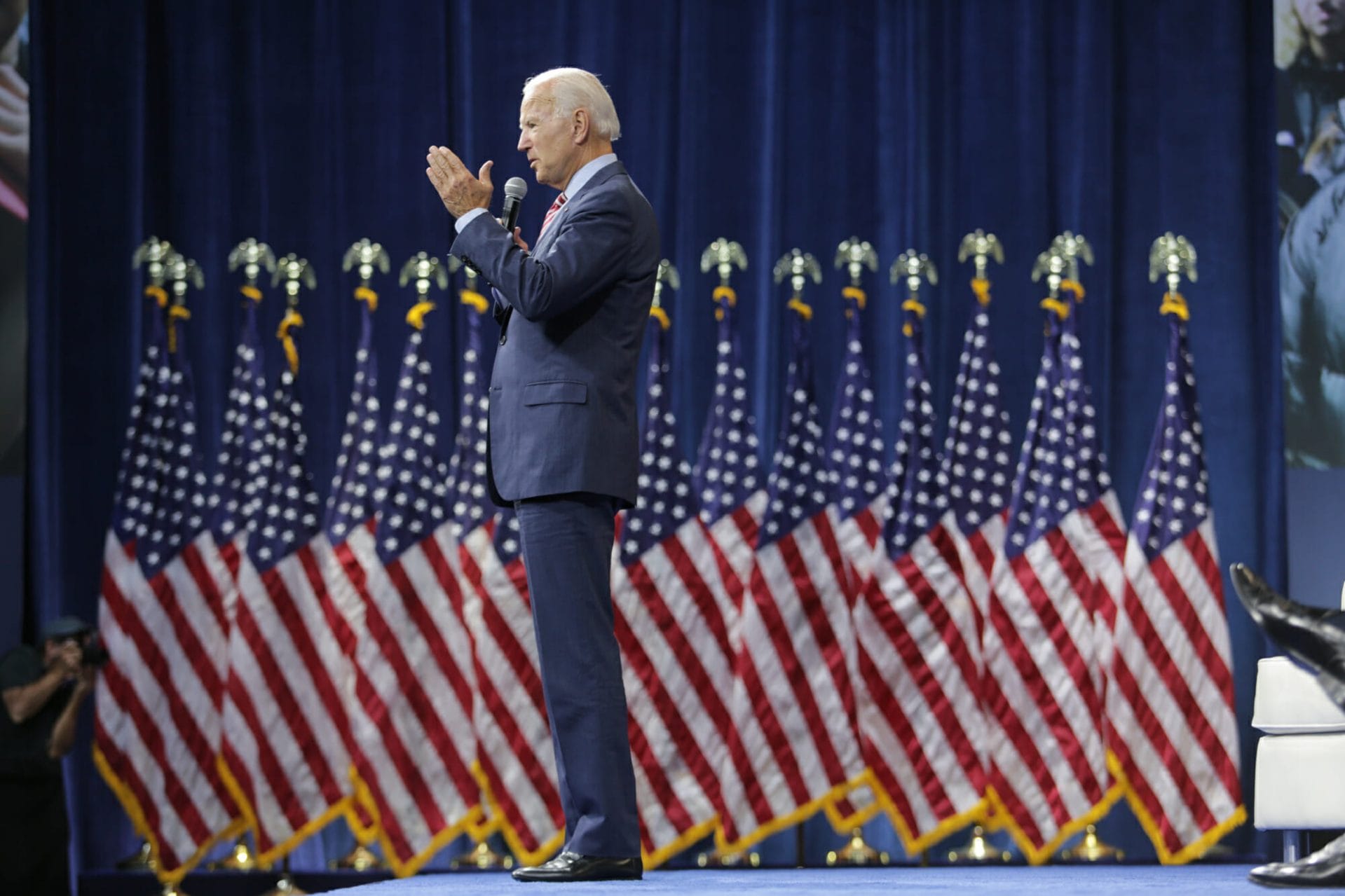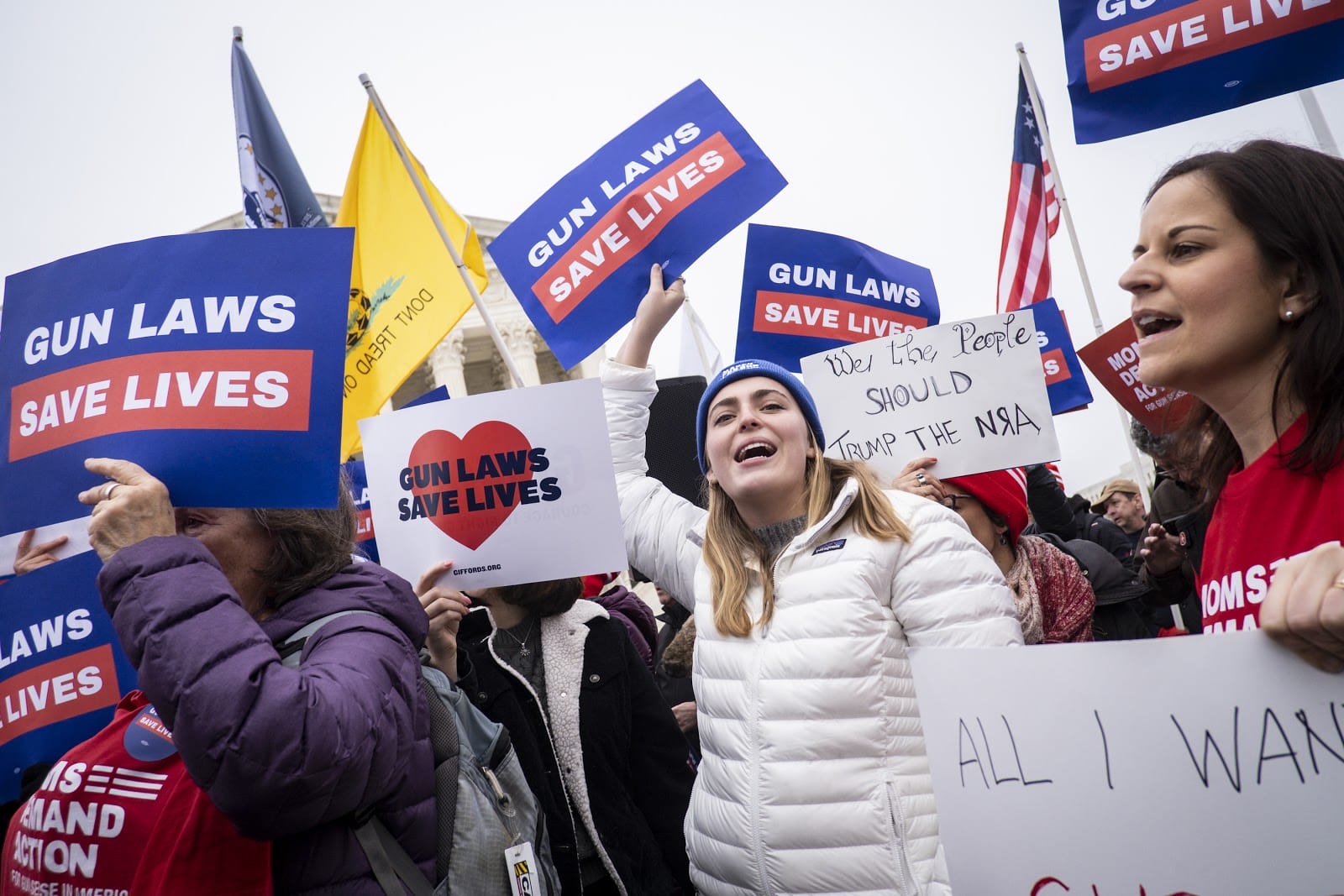
The Case for Expanding Background Checks Through Executive Action
Background checks are a fundamental safeguard against potential gun violence, helping to ensure that people who are prohibited from purchasing or possessing firearms cannot easily do so. Since the inception of the National Instant Criminal Background Check System (NICS) in 1998 through 2021, more than 411 million background checks have been processed, and in that timeframe, more than 3.8 million transactions were denied due to ineligibility. However, loopholes in the law allow unlicensed gun sellers to transfer firearms without conducting a background check. In the coming weeks, the Biden administration is expected to announce a proposed rule updating the definition of those “engaged in the business” of selling firearms, moving the needle closer to requiring background checks on every gun sale.
Federal law prohibits the possession or purchase of firearms for people who are: convicted of violent felonies or misdemeanor domestic violence, under the age of 18, involuntarily committed to a mental institution, certain non-citizens, fugitives from justice, dishonorably discharged from the armed forces, and unlawful users of controlled substances.
Currently, federal law requires that only licensed gun sellers, or federal firearm licensees (FFLs), conduct background checks on prospective gun purchasers. Unlicensed gun sellers and individuals conducting sales do not have the same legal obligation to conduct a background check on purchasers. The exploitation of this loophole in the law is a major source of firearms that are used in crime. In 2023 alone, several mass shootings involved firearms that were obtained without a background check:
- In Cleveland, Texas a man shot and killed five neighbors with an AR-15-style rifle after a dispute involving loud noise. The shooter was subject to a protective order that specifically barred him from possessing a firearm or ammunition and had been deported from the country several times.
- During the Fourth of July weekend, a man in the Kingsessing neighborhood of Philadelphia, Pennsylvania shot and killed five people and wounded two others over a period of several days with an AR-style ghost gun.
- In Red Springs, North Carolina, a man previously convicted of murder shot and killed three people. As a convicted felon who was on parole, the shooter was legally prohibited from possessing firearms.
However, when the background check system is properly utilized and people with dangerous intentions are not able to purchase guns, the type of mass violence inflicted far too often with firearms can be prevented. In 2017, a man accused of terrorism was successfully prevented from purchasing a gun when he visited a Michigan gun show that limited sales to licensed gun dealers who conducted background checks. The man, who was unable to purchase a gun because of his citizenship status, continued with his plan but with a knife he acquired at the show instead. He later conducted an attack at the Bishop International Airport near Flint which resulted in the stabbing of a single police officer but could have been catastrophic had a background check not prevented the perpetrator from obtaining a gun.
MEDIA REQUESTS
Our experts can speak to the full spectrum of gun violence prevention issues. Have a question? Email us at media@giffords.org.
Contact
Recognizing the danger posed by the loopholes in the federal firearm background check law which allow ineligible people to easily obtain guns from unlicensed sellers, several states have acted to strengthen their background check requirements beyond the federal law. Twenty-one states and the District of Columbia mandate background checks for at least some gun sales from unlicensed sellers. Fourteen states out of the 21 (California, Colorado, Connecticut, Delaware, Maryland, Nevada, New Jersey, New Mexico, New York, Oregon, Rhode Island, Vermont, Virginia, and Washington) and the District of Columbia generally require universal background checks for the sale of all classes of firearms, whether they are purchased from a licensed seller or an unlicensed seller.
At the federal level, however, legislative efforts to expand the background check requirement beyond FFLs have repeatedly stalled. After the devastating shooting at Sandy Hook Elementary School in 2012, a bipartisan effort in the US Senate to expand background checks in 2013 failed. At least three more times since the Sandy Hook massacre, the Senate has tried and failed to pass background check legislation. On the other side of the Capitol, the US House of Representatives successfully passed H.R. 8, the Bipartisan Background Checks Act, in 2019 and 2021. H.R. 8 would have expanded the background check requirement to all sales and transfers of firearms, with reasonable exceptions for hunting, law enforcement, self defense, and gifts between close family members, but H.R. 8 never received a vote in the Senate and thus never became law.
In 2022, another devastating mass shooting at an elementary school in Uvalde, Texas prompted efforts by gun safety champions in the US Senate to strengthen federal gun laws and hopefully expand background checks. This time these efforts resulted in the successful passage and signing of the first significant gun safety law in nearly 30 years, the Bipartisan Safer Communities Act (BSCA). While the BSCA did not explicitly expand the background check requirement beyond licensed gun sellers, the law did create a new process for enhanced background checks for people under age 21, requiring that juvenile justice and mental health records be checked for potential buyers under the age of 21. Additionally, the BSCA made minor changes to the language that determines which gun sellers are required to obtain a federal gun dealer’s license, altering the definition of who is considered “engaged in the business” of selling firearms.
Since its founding a decade ago, GIFFORDS has made expanding background checks a top legislative priority at the federal level. Former Congresswoman Gabby Giffords testified in front of the Senate Judiciary Committee in 2013 ahead of the failed vote on background checks. In the years following, GIFFORDS has supported every subsequent attempt in Congress to expand background checks, including championing H.R. 8 and its companion legislation in the Senate.
While doggedly advocating for Congress to pass background check legislation, GIFFORDS also explored and encouraged opportunities to expand background checks via executive action. During a January 2015 meeting with former President Barack Obama, GIFFORDS called on the Obama administration to clarify the definition of “engaged in the business” and require more gun sellers to become licensed and conduct background checks on gun buyers. Later that year, Gabby Giffords again met with President Obama and urged him to pursue a number of executive actions on gun safety, including on background checks.
GIFFORDS Endorses President Biden for Reelection
Aug 10, 2023
In early 2016, around the time that the Obama Administration announced several efforts to expand background checks and improve the background check system, GIFFORDS conducted polling proving that a majority of Americans supported utilizing executive action to expand background checks. At that time, the Bureau of Alcohol, Tobacco, Firearms and Explosives (ATF) issued guidance specifying that a person can be engaged in the business of dealing in firearms regardless of the location in which firearm transactions are conducted and that those engaged in the business of dealing in firearms who utilize the Internet or other technologies must obtain a federal firearms license. While this was an important step forward, GIFFORDS has continued to recommend that federal rulemaking building on this guidance could further shrink the background checks loophole and reduce the volume of guns sold without a background check.
During the 2020 presidential transition, GIFFORDS and the Center for American Progress collaborated on a memo outlining dozens of gun safety priorities for the incoming Biden-Harris administration, including a recommendation for a rulemaking to clarify that any person who sells five guns or more in any 12-month period is “in the business” of selling firearms, regardless of whether the profits from such sales constitute a significant portion of the seller’s “livelihood.” Following passage of the Bipartisan Safer Communities Act in 2022, GIFFORDS again urged ATF to follow up on Congress’s intent to include those who make repetitive sales in the federal licensing regime, and issue a regulation stating that any person who sells five guns or more in any 12-month period is “in the business” of selling firearms.
In March 2023, the Biden administration announced its intention to “[move] the U.S. as close to universal background checks as possible without additional legislation.” The Department of Justice (DOJ) has yet to publish its proposed rule but it is expected some time in the fall of 2023.
GET THE FACTS
Gun violence is a complex problem, and while there’s no one-size-fits-all solution, we must act. Our reports bring you the latest cutting-edge research and analysis about strategies to end our country’s gun violence crisis at every level.
Learn More
Strengthening the federal firearm background check law has long been a goal of GIFFORDS and the gun safety movement because of the potential to reduce violence and ensure that people who are prohibited from accessing firearms cannot easily do so. An estimated 22% of US gun owners acquired their most recent firearm without a background check—which translates to millions of Americans acquiring millions of guns, no questions asked, each year. With gun violence on the rise and lives at stake, the Biden administration must ensure that any rulemaking intended to crack down on unlicensed sellers makes the background check loophole as narrow as possible.

JOIN THE FIGHT
Over 40,000 Americans lose their lives to gun violence every year. In communities, courts, and ballot boxes nationwide, Giffords fights to save lives from gun violence. Will you join us?

